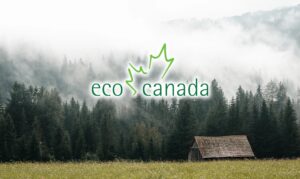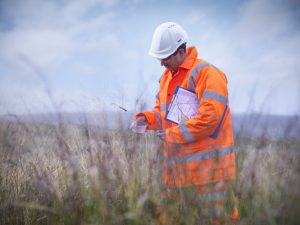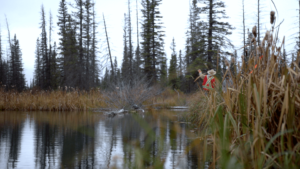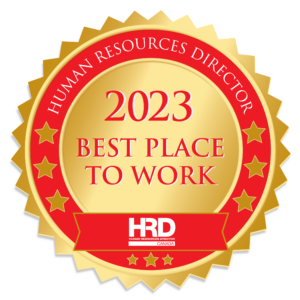Whether you’re considering becoming an environmental business owner or progressing into a senior role, there are over 200,000 opportunities to do that in Canada.
It’s true. We did the math and it’s backed by research — check out our environmental labour supply and environmental labour demand reports.
Within a few years, almost 173,000 roles within the environmental industry will need to be filled. The net environmental job openings come from both retirement and sector growth.
98,300 roles to be filled + 74,400 new roles = 172,700 opportunities awaiting you.
We’re going to walk you through a few steps to get you on your way to finding an environmental job.
Step 1: Understand what’s in demand
Of the 183,400 roles that need to be filled, nearly half of those are for “core environmental workers.” Core environmental workers have specialized training in the environmental industry. If you’re looking for a senior-level role, this is likely where the job openings will be.
Core environmental jobs that will need to be filled include:
- mechanical engineers and life science professionals;
- facility operation and maintenance managers;
- landscape architects and urban and land use planners;
- forest technologists and technicians and conservation and fishery officers;
- and utilities equipment operators and controllers.
Now, let’s look at the 50,100 upcoming jobs in the environmental industry. If you’ve got an entrepreneurial spirit, this will help you think about sought-after environmental services.
Emerging jobs fields include:
- clean and alternative energy;
- clean technology (cleantech);
- nature conservation;
- sustainable transportation;
- green building and construction;
- and water quality.
If you were drawn to the environmental industry because you wanted to build your career and create a greener future, these emerging fields should validate that choice.

Step 2: Determine the skills you need to progress
In any profession, you need skills to advance. We’re going to talk about the difference between two particular skill sets: soft and technical.
- Soft skills are what you need to progress in your career. Leadership is an example of a soft skill.
- Technical skills are what you need to get a position. Understanding environmental policy and legislation is an example of technical skills.
What you see below is a snapshot of our essential skills report. The tables show you the specific soft and technical skills environmental employers expect from senior-level employees (8+ years of experience). Look below the heading in each graph to see the expectations.
Top 5 soft skills environmental employers expect
Where you are now (Employees with 3-7 years of experience) | What you need for a senior role (Employees with 8+ years of experience) |
| Project management: 71% | Negotiation and conflict resolution: 62% |
| Leadership: 70% | Leadership: 55% |
| Communication: 67% | Communication: 44% |
| Negotiation and conflict resolution: 67% | Project management: 42% |
| Problem solving: 61% | Team work: 36% |
You’ll notice “leadership” is the second most in-demand soft skill for employees with 3-7 years of experience. This isn’t a coincidence. If you want to progress, whether it be to a senior role or to owning your own environmental business, you need to demonstrate leadership skills.
Why is leadership important? It shows you want to and are ready to move forward in your career.
“You need to show you’re going after that growth,” says Casorso, Senior Manager of Employment Programs and Human Resources at ECO Canada. “You have to be able to demonstrate that you can take on more responsibility. One way to do this is to ask to sit in on different projects.”
Top 5 technical skills environmental employers expect
Where you are now (Employees with 3-7 years of experience) | What you need for a senior role (Employees with 8+ years of experience) |
| Policy and legislation: 50% | Policy and legislation: 42% |
| Industry knowledge: 48% | Communication and public awareness: 30% |
| Communication and public awareness: 41% | Climate change: 27% |
| Education and training: 38% | Research and development: 27% |
| Research and development: 35% | Health and safety: 26% |
We have online courses that can help you build these senior-level technical skills, specifically in climate change and policy and legislation. These include our:
- Post-Graduate Certificate in Science and Policy of Climate Change;
- and our Canadian Environmental Law course
Our free, online resources can also help you think about your career options such as the Connecting Career Paths ebook which outlines potential environmental career paths, from the education you need to potential salaries.
Step 3: Show initiative
You’ve done your research and understand what skills you need to advance. Now, it’s time to show initiative. This could be to prospective clients or your boss.
Stirling Fraser is the Senior Advisor of Regional Partnerships at ECO Canada. In addition to his work at ECO Canada, Fraser is an entrepreneur; he has been a consultant in the environmental industry for over 20 years.
“A few things come to mind for showing initiative”, said Fraser. Those things include:
- Learn, practice, and get proficient with your ‘soft skills’: this means communication, teamwork, and presenting.
- Practice being a leader and not just a manager: If you want to advance, being a leader is important. This means you understand the big picture; you can see and act on things from a 40,000-foot level while still relating and understanding the 1000-foot level.
- Show your value: This means going beyond the expectations of your bosses.
- And, always build trust and relationships.”
Consider environmental designations
Environmental designations certify that you’re competent in a specific area of the environmental industry. Designations also show that you’re committed to maintaining that specific competency; many designations have yearly professional development requirements.
Our Environmental Professional (EP) designation is one example. It’s recognized across Canada and gives you access to potential speaking opportunities, networking events, professional development, and more.
Fraser has an Environmental Professional (EP) and a Certified Environmental Auditor (CEA) designation.
“It went back to how I could provide value,” said Fraser. “The EP is a recognized designation that I felt showed you’re a respected leader in the environmental industry,” he explains. “To get it, there were professional development as well as ethics requirements.”
Fraser has also been an auditor for 10 years. Taking the CEA designation was another way to show value to his clients.
“I wanted to provide my clients with a greater level of assurance that the auditing I was doing on their behalf adhered to strict restrictions and was held to higher accountabilities,” he says.
Do your research
If you’re thinking about environmental designations or further training, take a look at our resources page. There you’ll find free guides and resources with information about our Environmental Professional (EP) designations, post-secondary education such as the Masters in Environmental Practice, and more.
Step 4: Think ahead
If you’re aiming for a senior-level position or want to be the CEO of your own environmental company, you need to think ahead.
To think ahead, doing strategic business planning, you need to free up your time. That means delegating day-to-day tasks. To delegate, you need to identify and mentor an employee who takes interest in your role.
What we’re talking about here, in part, is succession planning. That’s where you plan the future of your business or role within a company— a critical function as you move into more senior or management positions. If you’d like to learn more, check out our succession planning blog post.
Step 5: Connect with experts
Connecting with other environmental professionals is a way to learn how you can progress in your career and also, meet potential clients.
Here are a few ways you can make connections:
Arrange information interviews
That means asking a professional, or business owner that’s in your area of interest how they got to where they are today.
“Ask them about their career path and use it to guide your own,” says Casorso. “Then you can think about what steps you may need to take in your education and training.”
Join professional associations
Our EP designation offers a variety of networking events where you can meet like-minded professionals. Use these events to talk about your interests, ask questions, and explore ways to collaborate with other professionals.
Ask questions
There are lots of things to think about when it comes to progressing in your environmental career; we’re here to help!




